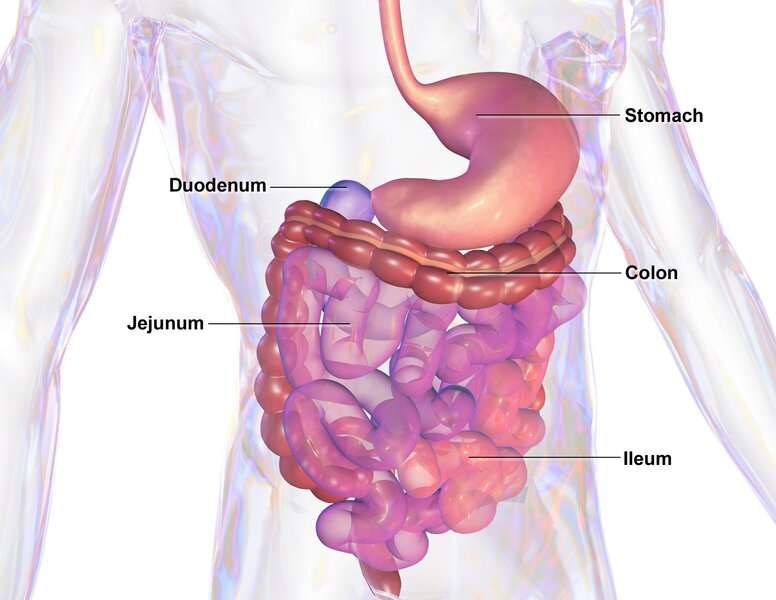Gastrointestinal System. Credit: Blausen.com staff (2014). "Medical gallery of Blausen Medical 2014". WikiJournal of Medicine 1 (2). DOI:10.15347/wjm/2014.010. ISSN 2002-4436. CC BY 3.0
Inflammatory bowel disease (IBD), with its two main disease entities Crohn's disease and ulcerative colitis, is a chronic and relapsing inflammation of the gastrointestinal tract. The highest prevalence of IBD is found in the Western world, and the lowest in developing countries.
IBD is associated with reduced health-related quality of life (HRQoL), substantial loss of work productivity and increased morbidity. In Sweden alone, around 70,000 persons are estimated to be affected by IBD. Treatment includes both surgery and medical therapy, including newer therapies such as biological agents. Since a sizeable number of patients do not respond or lose response to a certain biological agent, there is a need to know more about therapeutic options in IBD.
In this thesis from the Department of Medical Epidemiology and Biostatistics, Ph.D. student Anders Forss has explored real-world clinical outcomes of a recent biological therapy. Using registered-based data, his studies also investigated epidemiological aspects of IBD including the validity of IBD-related surgical procedure codes and the incidence of IBD in Sweden.
What are the main results in your thesis?
We found evidence that the Swedish National Patient Register (NPR) is a reliable and valid data source for researchers wanting to identify patients with previous IBD-related surgery. We also enhanced the knowledge about the real-world effectiveness of the biological agent ustkinumab (anti-interleukin (IL)-12/23)), beneficial for patients suffering from Crohn's disease. We showed that ustekinumab treatment of Crohn's disease patients was associated with long-term clinical effectiveness and improvement of HRQoL measures when used in routine clinical care. We were also able to shed light on previous contradicting estimates of the temporal trends of the incidence of IBD in Sweden. We found increasing incidence of IBD from 1990 up until 2001, but decreasing incidence during the period 2002–2014.
What should be done moving forward in this research area?
There is a need for further studies comparing ustekinumab treatment with other biological agents (head-to-head studies). It would also be interesting to study the efficacy of ustekinumab in subgroups of Crohn's disease patients with different disease presentation and location. Since we found decreasing incidence of IBD from 2002 up until 2014, it would be interesting to explore if this trend still holds and if there are any regional differences in the incidence in Sweden. The underlying reasons for the decreasing incidence are not fully known to us. Future studies that could identify these reasons would be welcomed.
More information: Anders Forss, Medical and surgical treatment of inflammatory bowel disease. openarchive.ki.se/xmlui/handle/10616/47841
Provided by Karolinska Institutet
























